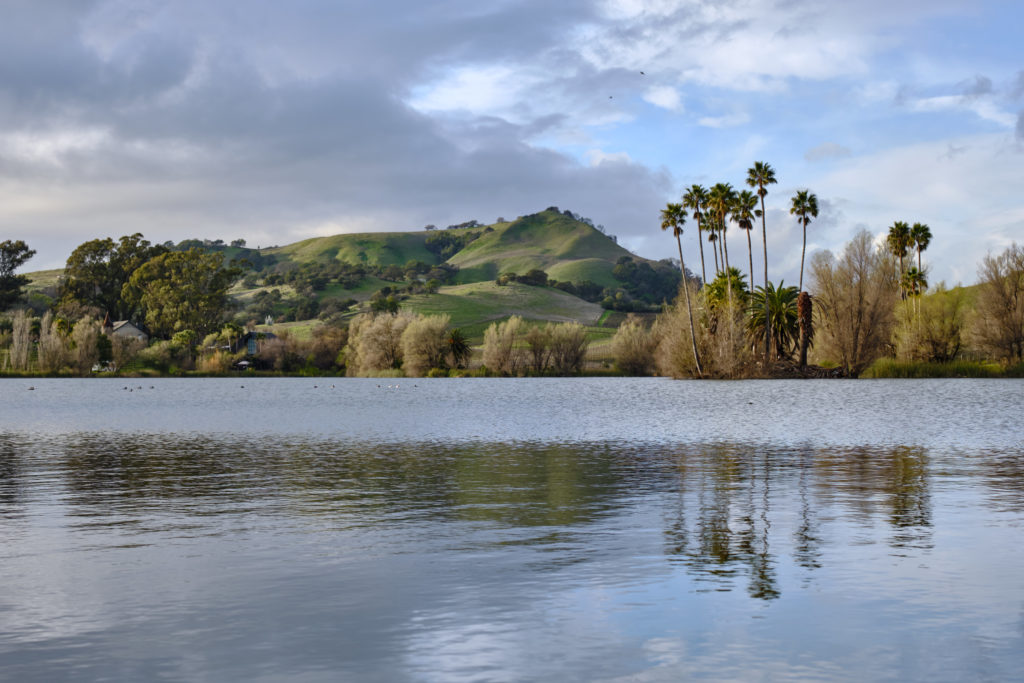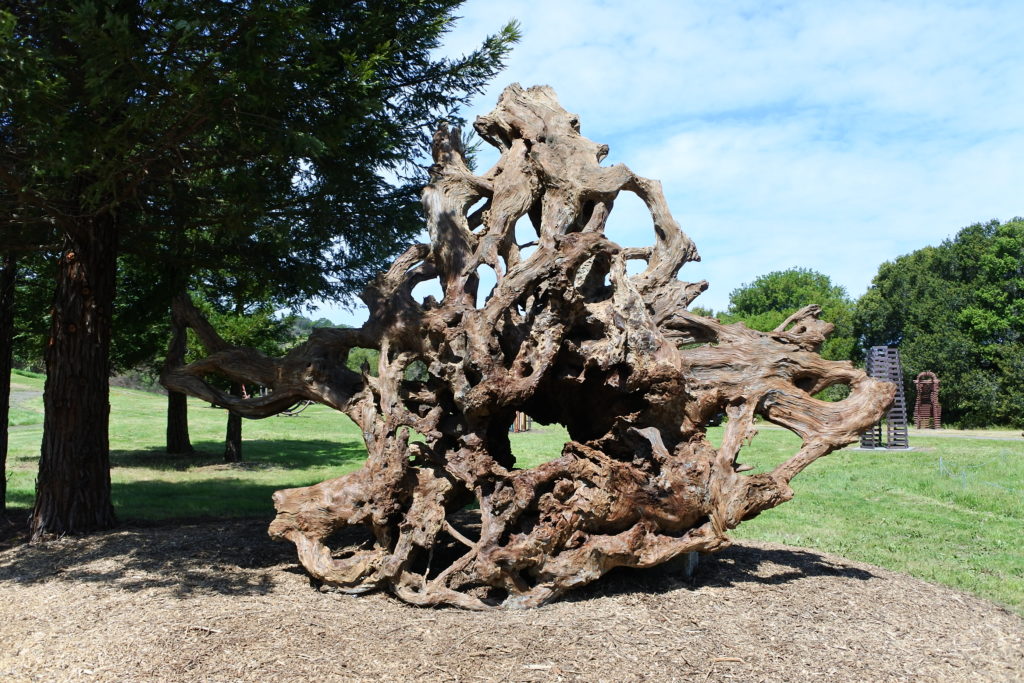Sustainability Statement
di Rosa recognizes the impact of human activity on Earth’s changing climate and is dedicated to preserving the natural environment for future generations. di Rosa is rooted in a founding mandate to preserve art and nature in tandem, and the belief that cultural institutions are uniquely positioned to influence change in people and communities. We are committed to leading sustainable practices in the museum field. Working in support of the Paris Climate Agreement, we recognize it is vital to reduce the world’s carbon emissions by 50% and sustainably reduce waste by 2030.


Working with various partner organizations, community stakeholders, Board members, staff, and volunteers, di Rosa has implemented sustainable policies and operations across its 217-acre property. Visitors will see our work in the following initiatives.
Inside our galleries and office spaces:
- LED lighting in gallery and office spaces to reduce power consumption and lengthen the lifespan of lights;
- Recycling and trash can receptacles are placed together throughout the property to increase recycling;
- Recyclable utensils, plates, and packaging for onsite programs and events.
Across the property:
- Electric vehicles for on-site visitor transport;
- In partnership with the Land Trust of Napa County, a progressive land management policy incorporating cattle grazing and future prescribed burns aimed at reducing wildfire threat and restoring biodiversity;
- In partnership with Tauzer Apiaries, a robust apiary program that supports local pollinators and increases biodiversity onsite.
di Rosa’s exhibitions and public programs are engaged with issues surrounding climate change and environmental justice. Examples include:
- The ongoing curatorial project Towards an Archaeology of the Future, which asks contemporary artists to engage with the fire crisis and related justice issues (in partnership with the California Indian Museum and Cultural Center, funded by the Warhol Foundation for the Arts);
- Listen Louder: Ana Teresa Fernandez, a 2023 exhibition exploring sea level rise and its intersection with human migration;
- Art + Ecology convenings, funded by the Yerba Buena Center for the Arts, invite local artists to explore and be trained in the use of sustainable artmaking materials;
- Camp di Rosa: Art + Nature, which introduces children to discourse around climate justice.
Green Team
di Rosa has established a Green Team to design, implement, and review its sustainability policies. Current members are:
Katie Kime, Collections & Exhibitions Manager
Andrea Saenz, Deputy Director
Twyla Ruby, Associate Curator
